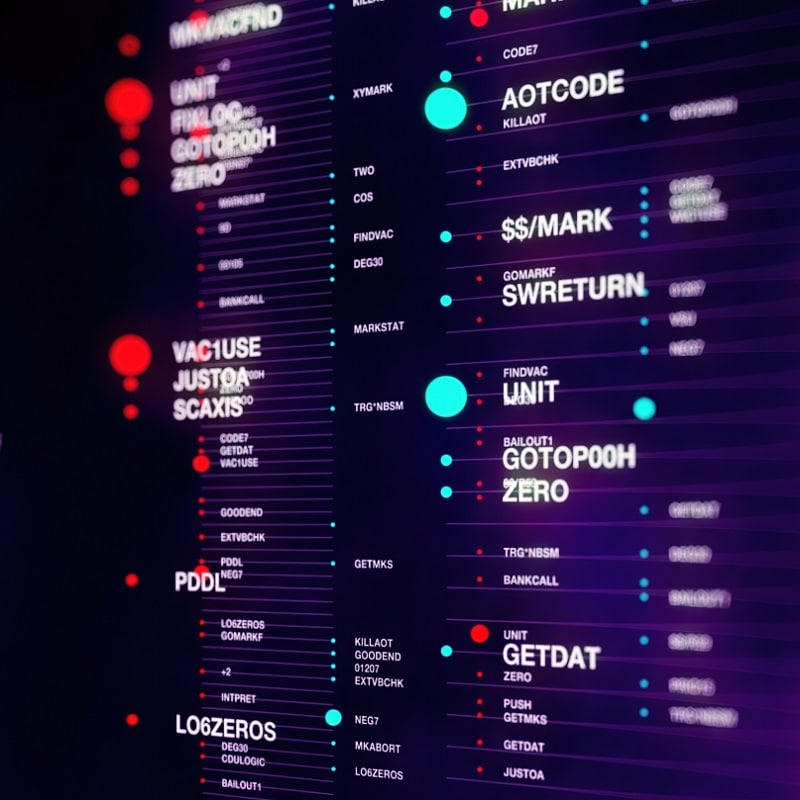Top 10 Benefits of Implementing AI in Your Manufacturing Processes
Top 10 Benefits of Implementing AI in Your Manufacturing Processes

In the dynamic world of the manufacturing industry, one key technology has been making significant waves: Artificial Intelligence (AI). As we navigate the complexities of the 21st century, AI has emerged as a game-changing factor, revolutionising various sectors, with manufacturing being a prominent one. The manufacturing industry, known for its keen adoption of technological advancements, has embraced AI to enhance its processes, improve efficiency, and ultimately, drive profitability. But what exactly does AI bring to the table in the context of manufacturing? How is it transforming traditional manufacturing paradigms?
In this article, we delve into the top 10 benefits of implementing AI in your manufacturing processes. Whether you are a seasoned industry player or a budding entrepreneur in the manufacturing sector, understanding the potential of AI can help you stay ahead of the curve in this competitive market.
The Evolution of AI in the Manufacturing Industry
As we delve deeper into the world of AI in manufacturing, it is essential to understand its evolution and how it has come to be a pivotal part of the industry today.
The concept of AI is not new. It was first coined in the mid-20th century, but it is only in the past few decades that we have seen its practical applications come to fruition, particularly in the manufacturing sector. The journey of AI in manufacturing can be traced back to the advent of computer numerical control (CNC) machines in the 1950s and 1960s, which automated the control of machine tools using coded instructions. This was the first step towards automation in manufacturing.
However, the real breakthrough came with the introduction of robotics in the 1970s and 1980s. These machines, guided by AI algorithms, could perform complex tasks with precision and consistency, marking a significant leap in manufacturing capabilities. The dawn of the 21st century brought with it the era of Industry 4.0, characterized by the integration of cyber-physical systems, the Internet of Things (IoT), and cloud computing into manufacturing. AI has been at the forefront of this revolution, providing the intelligence for these advanced systems.

Today, AI in manufacturing has evolved beyond automation, playing a crucial role in areas such as managing manufacturing operations, health and safety, quality control, supply chain optimisation, and even product design. It is not just about doing tasks faster and more accurately; it is about making smarter decisions, predicting outcomes, and continuously learning and improving.

The Adaptation of AI in the Manufacturing Industry – What Are the Drivers?
The answer to the question of why the adaptation of AI within manufacturing is gaining momentum lies in both external and internal factors. According to a report by Google Cloud, prior to the COVID-19 pandemic, AI adoption in manufacturing was relatively low, with only 21% of companies having active AI initiatives in production. However, the pandemic has significantly accelerated the use of AI and other digital technologies among manufacturers. Data from over 1,000 senior manufacturing executives across seven countries shows that 76% have turned to digital technologies and disruptive technologies like AI due to the pandemic. Among manufacturers who use AI in their day-to-day operations, 66% report that their reliance on AI is increasing. Looking at the sub-sectors in manufacturing deploying AI in day-to-day operations, automotive/OEMs lead the way with 76%, followed by heavy machinery at 67%. However, the extent of AI usage varies by geography.
Besides the global pandemic, extreme inflation and other disruptions, sustainability and energy management are key drivers. The manufacturing industry is, like many other industries, striving to attain Net Zero in the coming decades. Using AI and machine learning-enabled processes can help improve visibility into the scale of the problem and to drive solutions.
Looking at internal drivers, AI-enhanced processes and solutions are being researched and experimented with driven by the aim for efficiency optimisation and cost reductions. With production costs going up, increasing competitive markets, and the decrease in availability of skilled workforce, manufacturers are compelled to become more innovative and forward-thinking in order to maintain viability.
These statistics underscore the growing importance of AI in the manufacturing industry. They also highlight the fact that while adoption rates may vary across different sectors and regions, the overall trend is towards increased use of AI. This trend is expected to continue as more manufacturers recognise the benefits of AI and incorporate it into their operations.
The Benefits of Implementing AI in Manufacturing
Manufacturers primarily utilise AI for ensuring business continuity (38%), enhancing employee efficiency (38%), and providing comprehensive employee assistance (34%). Delving deeper into these categories, we can outline the top 10 benefits of integrating AI capabilities into manufacturing processes as follows.
1. Increased Efficiency: AI can automate repetitive tasks, freeing up human workers to focus on more complex tasks. This leads to increased productivity and efficiency in the manufacturing process.
“The Danone Group reported a 20% decrease in forecasting errors, a 30% decrease in lost sales, and a 50% reduction in demand planners’ workload thanks to machine learning.”

2. Improved Quality Control: AI-powered visual inspection systems can detect defects and irregularities with far greater accuracy than human inspectors, leading to improved product quality and reduced waste.
“BMW Group uses automated image recognition for quality checks and inspections, leading to higher precision in manufacturing.”
3. Enhanced Predictive Maintenance: AI can analyse data from machine sensors to predict when a piece of equipment is likely to fail. This allows for maintenance to be scheduled before a breakdown occurs, reducing downtime and repair costs.
4. Streamlined Supply Chain Management: AI can analyse vast amounts of data to optimise inventory management, demand forecasting, and logistics, leading to a more efficient and cost-effective supply chain.
“Fanuc, a Japanese automation company, uses robots for round-the-clock operation of its factories, leading to continuous monitoring of all operations.”

5. Reduced Operational Costs: By improving efficiency, reducing waste, and optimizing the supply chain, AI can significantly reduce operational costs.
“According to McKinsey, companies using AI have seen cost savings and revenue growth. Specifically, 16% of those surveyed noticed a 10-19% decrease in costs, whereas 18% saw a 6-10% increase in overall revenue. AI can improve forecasting accuracy in manufacturing by 10-20%, which translates to a 5% reduction in inventory costs and a 2-3% increase in revenues.”
6. Improved Safety Measures: AI can monitor workplace conditions and identify safety risks, helping to prevent accidents and ensure the wellbeing of workers.
7. Enhanced Decision Making: With AI, manufacturers are able to analyse complex data to obtain insights and recommendations, supporting better decision-making and strategic planning.
8. Increased Customisation Capabilities: AI can enable more efficient mass customization, allowing manufacturers to meet individual customer requirements without significantly increasing costs.
9. Greater Sustainability: By optimising resource use and reducing waste, AI helps manufacturers reduce their environmental impact and move towards more sustainable practices.
10. Competitive Advantage: Manufacturers that adopt AI gain a competitive edge by improving their efficiency, product quality, and customer service, and by innovating faster than their competitors.
“Porsche uses autonomous guided vehicles to automate significant portions of automotive manufacturing, reducing the need for human intervention and increasing resilience to disruptions like pandemics.”

The Journey of AI
The transformative power of AI in the manufacturing industry is undeniable. As we have explored, AI offers a multitude of benefits, from increasing efficiency and improving quality control to enhancing decision-making and providing a competitive edge. While the adoption of AI in manufacturing was initially slow, the recent surge in its use, driven by the global challenges and sustainability, has highlighted its potential to revolutionise the industry. Manufacturers across various sectors and regions are increasingly recognizing the value of AI and are integrating it into their operations to reap its benefits.
However, the journey of AI in manufacturing is far from over. As technology continues to evolve, we can expect AI to play an even more significant role in shaping the future of the manufacturing industry. Whether it is through advanced manufacturing management, more efficient supply chain management, or innovative product design, the possibilities are vast and exciting.
If you want to know more about how Elisa IndustrIQ utilises AI and ML in manufacturing solutions, have a look at our dedicated AI & ML page.
Read more about AI use cases in this article.